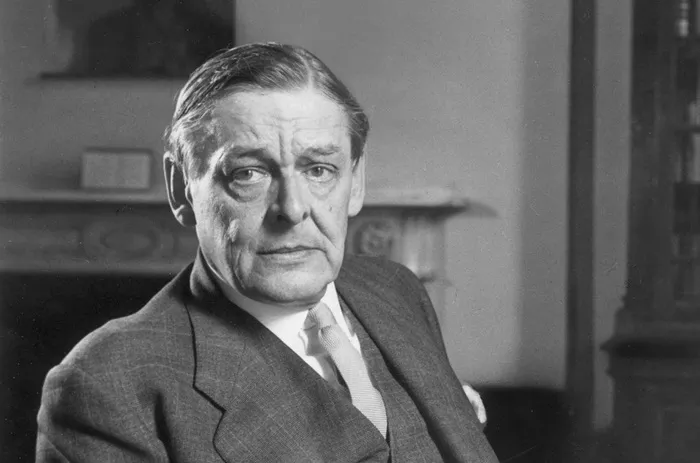Welcome to Poem of the Day – In Memoriam T. S. Eliot by Adrian Henri.
Adrian Henri’s poem “In Memoriam T. S. Eliot” serves as a reflection on the life and work of one of the most influential poets of the 20th century, T. S. Eliot. This article seeks to provide a clear and logical explanation of the poem, breaking down its themes, structure, and significance. Through simple sentences, we will explore the poem’s content and its deeper meanings.
In Memoriam T. S. Eliot Explanation
Introduction to the Poem
Adrian Henri, a British poet, was known for his exploration of contemporary culture, politics, and art. In “In Memoriam T. S. Eliot,” Henri honors Eliot’s literary legacy while acknowledging the shifting cultural landscape in which Henri himself was writing. The poem is a tribute to the modernist poet who revolutionized poetry with works such as The Waste Land and The Love Song of J. Alfred Prufrock. Henri’s work, however, moves in a different direction, focusing on a more accessible and often conversational style.
Theme of Memory and Loss
At its core, “In Memoriam T. S. Eliot” is about memory and loss. Henri reflects on Eliot’s death and the impact his work had on the literary world. However, the poem also highlights how time moves on and how the presence of great poets like Eliot is felt even after they are gone. Henri grapples with the idea of memory—both personal and collective—and the inevitability of loss.
The title itself, “In Memoriam,” echoes the famous elegiac poem by Alfred Lord Tennyson, in which the poet mourns the death of his close friend. By choosing this title, Henri places Eliot’s death in the context of broader cultural memory, suggesting that while Eliot’s death marks the end of an era, his influence continues to resonate.
The Structure and Tone of the Poem
Henri’s poem adopts a free verse structure, lacking strict rhyme or meter. This structure reflects the changing times and the flexibility of contemporary poetry. In contrast to Eliot’s more formal and structured verse, Henri embraces a freer, more fluid approach to poetry. This shift from the rigidity of modernism to a more open form mirrors the changes in cultural and artistic expressions in the mid-20th century.
The tone of the poem is reflective and melancholic, with moments of reverence for Eliot’s achievements. Henri’s voice is both personal and universal, suggesting a collective sense of mourning. Despite this sadness, there is an underlying sense of acceptance, as the poem acknowledges the inevitability of death and the continuity of life.
The Influence of T. S. Eliot
T. S. Eliot’s work has a profound impact on contemporary poetry, and Henri’s poem acknowledges this influence. Eliot’s themes of alienation, fragmentation, and the search for meaning in the modern world are reflected in Henri’s own work. Henri, however, approaches these themes with a more conversational tone, making them more relatable to a wider audience. While Eliot’s work can be dense and complex, Henri’s poem remains accessible, inviting readers to reflect on the legacies of great poets in a way that feels personal and intimate.
Cultural Shifts and Changing Times
Henri’s tribute to Eliot also touches upon the cultural shifts of the 1960s, when the poem was written. During this period, society was experiencing rapid changes in technology, politics, and art. Henri’s reference to Eliot serves as a reminder of a time when poetry had a more significant place in the public sphere. As new cultural movements emerged, including the Beat Generation and pop culture, the role of the poet and the type of poetry valued by society were evolving.
Through this lens, “In Memoriam T. S. Eliot” can be seen as a commentary on the state of poetry in Henri’s own time. While Eliot’s poetry remains a cornerstone of modernist thought, Henri’s work points to a future where the forms and purposes of poetry continue to shift and adapt.
Conclusion
Adrian Henri’s “In Memoriam T. S. Eliot” is both a tribute to the poet and an exploration of the themes of memory, loss, and change. Henri reflects on the legacy of T. S. Eliot while acknowledging the evolving landscape of poetry in the 20th century. Through its free verse form and melancholic tone, the poem offers a personal yet universal meditation on the passing of time and the lasting impact of great artistic figures. By engaging with Henri’s tribute, readers are invited to reflect on how poets shape the cultural consciousness and how their influence endures long after their deaths.
In essence, “In Memoriam T. S. Eliot” reminds us that poetry is not only about the words written on the page but also about the way those words continue to resonate through the generations.

